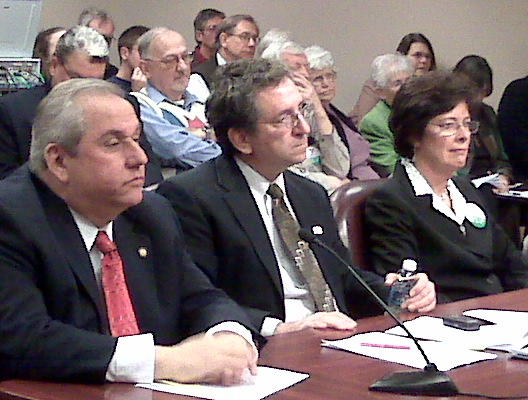Looking Backward, Looking Forward: 2023, 2024, Before and Beyond
Looking Backward: 2000-1887 by Edward Bellamy - Full Audiobook (English) .Looking Backward: 2000-1887. is a thought-provoking utopian novel by Edward Bellamy. An unexpected sleep transports its ...
(Image by YouTube, Channel: Full Audiobooks) Details DMCA
In 1888, Edward Bellamy's forward-looking novel, Looking Backward 2000-1887, made a sensational impact in an American society reeling from the ravages of the Gilded Age's barbarous Capitalism and Social Darwinism. Bellamy's Boston of the futuristic year 2000 - as conveyed to us by time-traveler Julian West - gives us a utopian vision of universal justice, shared wealth, religious harmony, and global peace. Looking Backward touched millions of Americans and non-Americans, fostered hundreds of Bellamy Societies (most after his 1898 death from tuberculosis), helped launch two magazines, a political party, and a generation of innovative social thinkers such as Jane Addams and John Dewey.
For a school-age kid born in 1959, trying to make sense of the traumatizing JFK, MLK, and RFK assassinations, a Vietnam War centered on lies and televised mass murder, and constitutional crises that forced two presidents and one vice president out of power, Looking Backward was a welcome sanctuary. It gave me hope at a time when many Americans fell into despair, depression, and cynicism. While Bellamy's vision has never left me, the richness and beauty of his imagined utopia seemed less and less attainable as the fulcrum point of American politics moved further and further to the right over the ensuing decades. That fuller realization, that the promise of a better society was receding, not advancing, combined with several personal, professional and spiritual struggles, compelled me to reexamine my life's work and mission. I needed a fundamental course correction, to connect the social justice politics at my core with an organizing strategy to wrap around everything I do.
Bellamy's radical vision of a kind and decent society is precisely what I needed to reconstruct all aspects of my life. So long as I keep that utopian perspective at the center of my thoughts and actions, I can be decisive and intentional in the steps I take. Like Bellamy and Dewey and Addams, I am being pragmatic about my choices. Radical hope, unlike optimism, is not an ideology. Radical hope provides me a focus and a purpose at the center of a larger strategy for personal and political success. Optimism is an outlook rooted in positivism. It permits lazy thinking and frequently divorces one from moral clarity. Perhaps the best example is Voltaire's Pangloss character in Candide (1759). You know, the person with the rose-colored glasses. Voltaire's satirical rendering of philosophical optimism allowed readers of pre-Revolutionary France to see the dangers of excessive positive thinking while the oppressed 98% suffered mercilessly under the monarch, the church, and the nobility. The parallels to 2024 America are unmistakable.
Again, rooted in the perspective of the radicalizing experiences of a social justice fighter since the watershed year of 1968, in particular, it has been the reconnecting with Bellamy at a monumental crisis moment that has brought forth unexpected and extraordinary revelations. Imbibing a utopian vision anew after several decades has transformed my attitude and thinking. As an organizer, academic, and agnostic, I embrace radical hope as the best means of conceptualizing and visioning universal transformational justice.
Looking Backward's transformational view of what is possible when collective responsibility, shared values, and mass-participatory-democratic thinking and action take root, has inspired generations of citizen leaders to advance and elevate social change, beginning with the Progressive Era of the latter 19th and early 20th centuries (starting with Milwaukee in the 1880s, Wisconsin statewide in the 1890s, and the U.S. from 1901-1917. Community leaders would embrace Bellamy's vision again, in various forms, through citizen-driven, state-based government programs that fed the New Deal (1933-1945), the Fair Deal (1945-1953), the New Frontier (1961-1963), and the Great Society (1964-1968).
Bellamy also helped to guide, more specifically, FDR's "Four Freedoms" (6 January 1941) and the Eleanor Roosevelt-led Universal Declaration of Human Rights (adopted unanimously by the United Nations, 10 December 1948). Today, that vision is manifest in the grassroots-backed legislative prescriptions of the New Green Deal, the Rural Bill of Rights, the State-Based Universal Health Care Act (H.R. 6270, where my own work in centered), and more.
(Note: You can view every article as one long page if you sign up as an Advocate Member, or higher).





